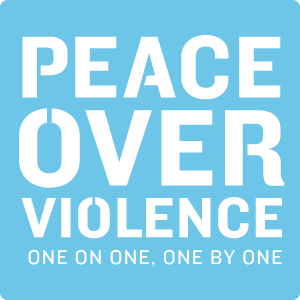If Someone You Know has been Sexually Assaulted
It is normal for you to feel upset and confused.
At a time when you may most want to help the survivor through this crisis, you may be dealing with a crisis of your own. In order to help the survivor through this difficult time, it is important to be aware of the deep emotional upset and sense of violation that many survivors feel after being sexually assaulted.
Other people may not understand how important it is for the survivor to make her/his own decisions, as trivial as those decisions might seem, in order for the survivor to regain control. Not understanding the reality of sexual assault can make the crisis more difficult for you and the survivor.
Counselors can assist you in dealing with your personal feelings as well as answer questions about medical, legal, or other issues. Rape hotline counselor advocates are available to support you as well as the survivor on our 24-hour hotline. Your feelings of fear, anger, confusion, guilt, or powerlessness are normal.
If you can communicate and do the following it will generally assist healing:
Listen to them without judging or giving advice, “I support you, and I am always available if and when you are ready to talk.” This helps restore a sense of power which was taken during the assault.
Remind them that they are not to blame for the violence perpetrated against them, “It’s not your fault,” “I’m sorry it happened, I believe you.”
Make them aware of options, community resources, local sexual assault crisis hotline and let them choose, “There are places that can be helpful to talk to like a hotline.”
Things you can do to help support them:
Ensure the survivor is at a safe location away from the perpetrator. If not, consider helping them get to a safe place when doing so does not pose a safety risk to you.
If a threat to the survivor’s immediate safety exists, contact law enforcement as soon as possible.
If the survivor requires emergency medical care, call 911.
If the survivor needs medical attention that is not life threatening, help connect them to a medical provider as soon as possible.
Other than safety and health-related questions, try to refrain from asking the survivor for details about the assault.
Show interest in what they say and ask what you can do to help them.
Inform the survivor that they can access a rape crisis center for information, support and advocacy.
Offer to stay with the survivor. Survivors are sometimes reluctant to be alone after an assault.
Consider accompanying the survivor to the hospital or other places if they request it.
Be a good listener. Avoid being judgmental, keep from second-guessing and resist placing any blame on them. Simply listen and accept what they say.
Many survivors try to blame themselves because they think the sexual assault would have been prevented had they done something differently. In most cases, survivors have very little control over the outcome of a situation once a perpetrator decides to commit a sexual assault.
Again, employ your listening skills and avoid giving an opinion about what has happened.
Remind the survivor that you support them.
Always respect the survivor’s confidentiality. Do not tell others about the survivor’s assault without the survivor’s explicit consent.
Take care of yourself too. Make sure you seek support and help if you are feeling overwhelmed. Again, respect the survivor’s confidentiality.
There is no “right” or “wrong” way to recover from a sexual assault. However, there are unhelpful, self-destructive ways of coping. Alcohol abuse, drug use, suicidal statements or increased behaviors with unhealthy outcomes (unprotected and/or anonymous sex, gambling, smoking, overeating, etc.) are sometimes warning signs that your friend needs to get professional assistance. Don’t be afraid to suggest that the survivor might need support from someone especially skilled to help them adopt more productive coping strategies.
